Table of Contents[Hide][Show]
- What are Psyllium Husks?
- Pysllium Husk Lowers Fasting Blood Sugar
- Pysllium Husk Lowers Postprandial Blood Sugar
- Pysllium Husk Lowers A1c Levels
- Pysllium Husk Improves Insulin Sensitivity
- Psyllium Husk for Lipids and Cholesterol
- Supplementing with Psyllium Husk
- Recommended Supplements
- Using Psyllium Husk in Cooking
- Overview of Psyllium Husk Benefits
Blood sugar and cholesterol levels are two very important health indicators that we all need to take care of. These factors become especially important to people living with type 2 diabetes and prediabetes.
That’s where natural dietary agents like psyllium husk come into play. You may have heard of psyllium husks in terms of relieving constipation, but what you may not know is that supplementing with psyllium husks can significantly decreased blood sugar levels and cholesterol.
What are Psyllium Husks?
Psyllium husks are derived from an Indian shrub called Plantago ovata. They are soluble fibers that fuel healthy gut bacteria, boost digestion, and due to their large 10-30% mucilage, they are most commonly used as natural laxative to relieve constipation.
Like other soluble fibers, psyllium husks help move digestion along by wrapping the digested food in a gel-like coating. This coating makes breaking down and eliminating food a much easier task, which leaves you feeling lighter and more energetic.
Still, while digestive health benefits are great, you will be even more excited to learn about the blood sugar-stabilizing and cholesterol-lowering potential of these tiny husks.
How Psyllium Husks Work
The exact mechanism behind the glucose and cholesterol-lowering effects of psyllium husks has not been clearly identified. However, researchers suggest it is the high soluble fiber content of psyllium husk that may play a significant role in these outcomes.
Soluble Fiber Alters Carbohydrate Digestion
Since psyllium produces a viscous gel-like substance, this slows the absorption of glucose from the small intestine. Additionally the fiber helps delay stomach emptying, which stalls carbohydrate digestion. The fiber may also prevent carbohydrate from accessing certain digestive enzymes, which alters their metabolism.
Soluble Fiber Prevents Blood Glucose Spikes
In terms of blood sugar levels, all these functions help to promote more stable blood sugars, eliminate sudden spikes in glucose, and encourage lower A1C levels.
Soluble Fiber Changes Cholesterol Metabolism
In terms of cholesterol, soluble fiber is thought to alter bile metabolism, which appears to deplete bile salt in the liver. As a consequence this alters cholesterol metabolism.
Soluble fiber also increases LDL receptors, enhancing LDL cholesterol uptake from the bloodstream, which results in lower cholesterol levels. And since the fiber reduces glucose levels, this reduces liver insulin stimulation of cholesterol synthesis.
Soluble Fiber Influences Gut Bacteria
Fiber also influences gut bacteria and the production of short chain fatty acids (propionate) they produce. In turn this decreases cholesterol absorption and positively influences cholesterol metabolism, lowers inflammation, and support diabetes health.
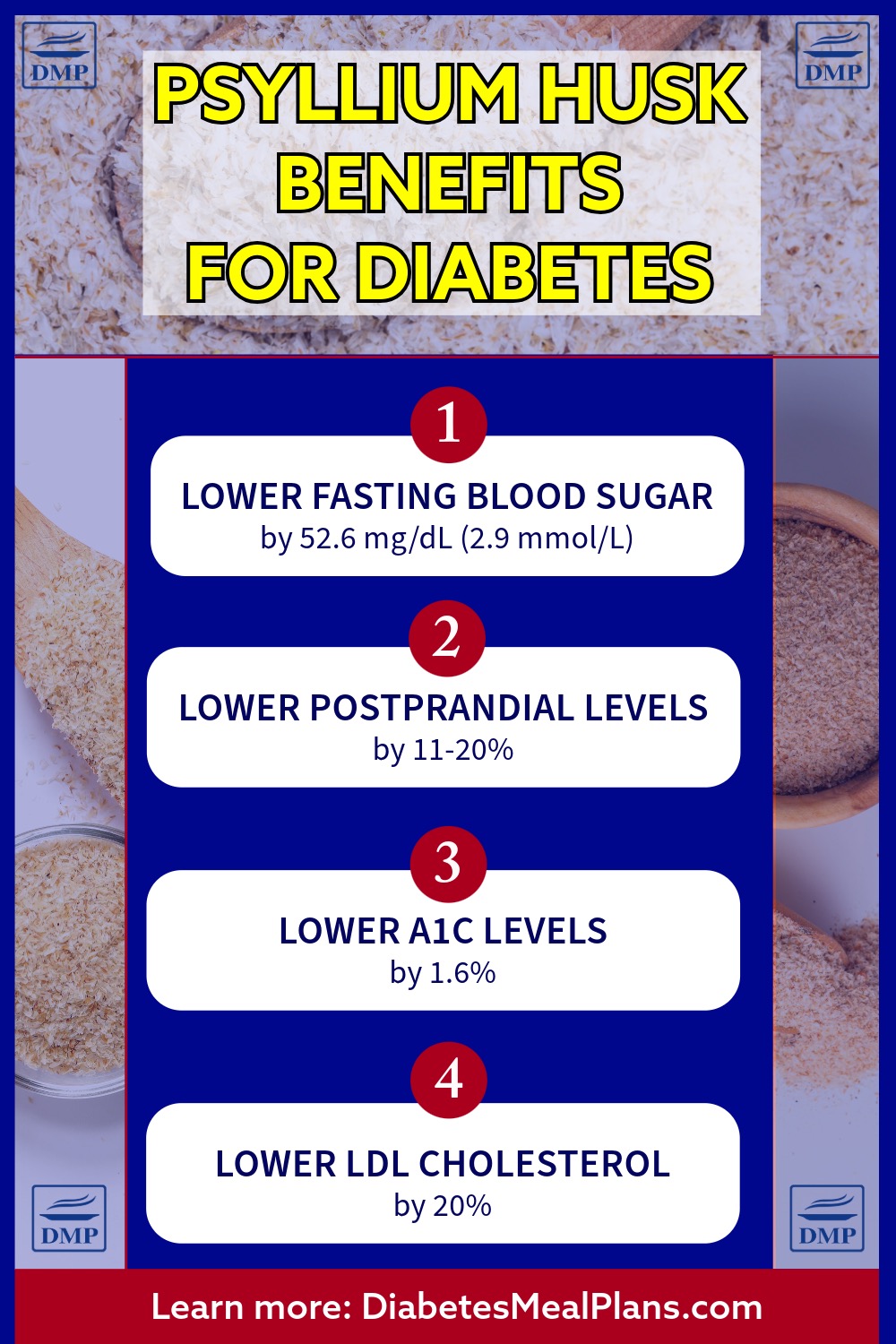
Pysllium Husk Lowers Fasting Blood Sugar
When taken regularly, psyllium husk may be an effective, natural option for improving your morning blood sugar levels, a number that is often high due to the Dawn Phenomenon.
When researchers gave diabetic patients, 5.1 g psyllium husks for 8 weeks, taken 20-30 minutes before the morning and breakfast meal, they found their fasting glucose levels reduced by 52.6 mg/dl (2.9 mmol/l) and they also had an average 1.6% reduction in A1c levels – pretty impressive results!
Another study in type 2 diabetic patients, found that fasting blood sugar reduced by 43.6 mg/dl (2.4 mmol/l) and A1c reduced by 0.6%. In this study, people were given 7 g psyllium 15 minutes before lunch and 3.5 g 15 minutes before dinner.
KEY POINT: Psyllium husk supplementation can reduce fasting (morning) blood sugar levels by 43.6 – 52.6 mg/dL (2.4 – 2.9 mmol/L).
Pysllium Husk Lowers Postprandial Blood Sugar
When diabetic men were given 5.1 g of psyllium twice per day for a total of 8 weeks, they experienced improvements in all-day and lunch postprandial (post-meal) blood glucose levels, 11% lower compared to the placebo group.
In children and adolescents with altered carbohydrate and lipid metabolism, psyllium husk supplementation reduced their postprandial glucose levels between 12.2% to 20.2%.
Yet another study found that people with type 2 diabetes taking psyllium husk over 12 weeks had an average reduction in postprandial blood sugar levels of 63 mg/dL (3.5 mmol/L), which is a great result!
KEY POINT: Psyllium husk supplementation can lower postprandial blood sugar levels by 11-20%.
Pysllium Husk Lowers A1c Levels
When researchers reviewed multiple clinical trials to evaluate the A1c lowering-effects of psyllium husk in diabetes, they found psyllium husk supplementation led to a 0.91% reduction in A1c.
Other research has shown that A1c can be lowered by up to 1.6% by taking psyllium.
KEY POINT: Psyllium husk supplementation can lower A1c levels up to 1.6%.
Pysllium Husk Improves Insulin Sensitivity
In a study in which people with type 2 diabetes were given 7g of psyllium husk powder along with a moderate carbohydrate diet, found they had a significantly increase in insulin sensitivity, which is great news, because the more the body’s cells can detect insulin, the easier it is for your body to regulate glucose.
Similar research has also shown that insulin function is better and insulin resistance is lower in people with type 2 diabetes supplementing with psyllium for 8 weeks.
KEY POINT: Psyllium husk supplementation improves insulin sensitivity, which helps your body regulate blood sugar more efficiently.
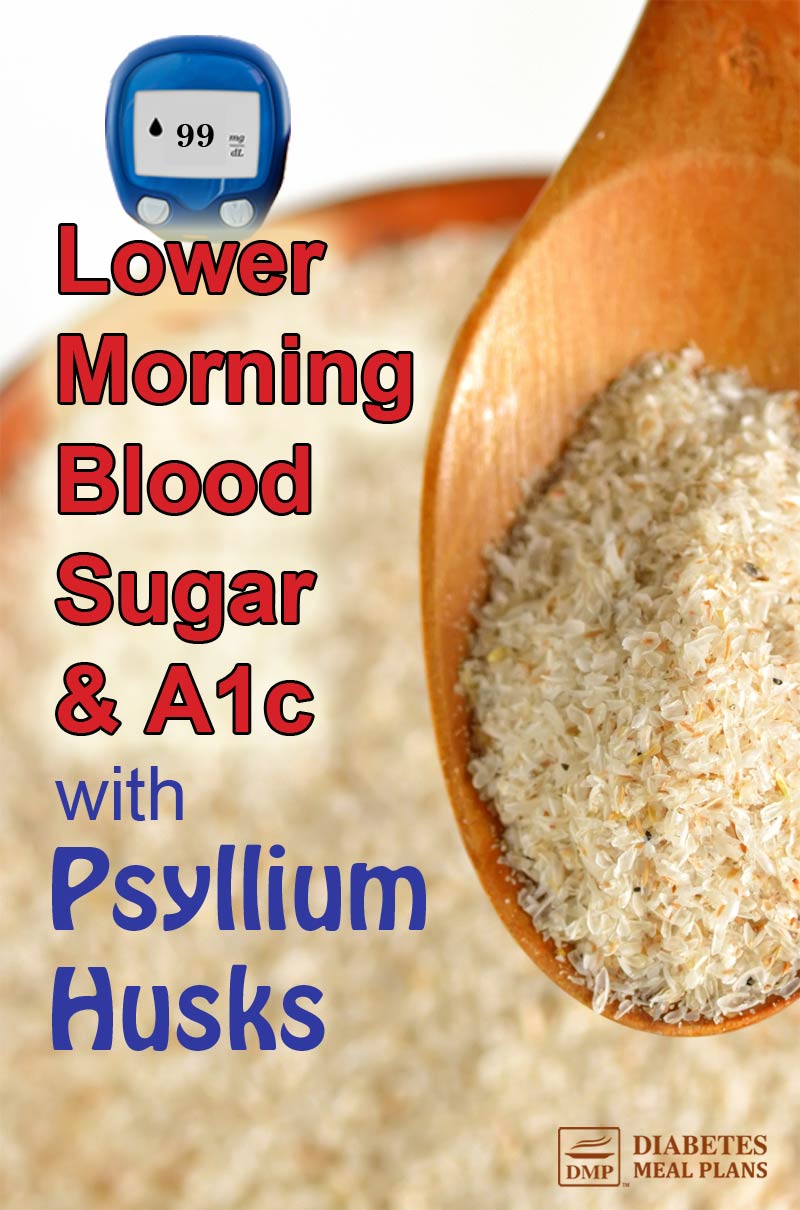
Psyllium Husk for Lipids and Cholesterol
Research has also proven benefits of psyllium husk for aiding with cholesterol reduction.
One study found that taking 5.1 g of psyllium husks twice a day for 8 weeks, resulted in a reduction in total cholesterol and LDL cholesterol, an average 8.9% lower than the placebo group.
Another study discovered that supplementing psyllium (15 g/ day) alongside traditional cholesterol-lowering drugs (statins) actually increases the drug’s effectiveness and may allow people to take a lower dose. People in the study taking 10 mg of statins and 15 g/day of psyllium, had the same outcome as those taking 20 mg of statins.
In patients with moderate hypercholesterolaemia, taking 3.4 g of psyllium at mealtimes 3 times per day reduced total cholesterol levels by 14.8%, LDL by 20.2% and the ratio of LDL/HDL by 14.8%.
When reviewers evaluated 8 clinical trials and the effect of psyllium husks on cholesterol levels, they concluded that 10.2 g psyllium per day reduced total cholesterol by an average of 4.2%, LDL by 7% and lowered the ratio of LDL/HDL by 6%.
Psyllium husk is beneficial for reducing triglyceride levels by around 19.18 mg/dL.
KEY POINT: Psyllium husk supplementation can help lower triglycerides, LDL and total cholesterol levels.
Supplementing with Psyllium Husk
You can choose to supplement either whole psyllium husks or refined psyllium husk powder. You can purchase these in packets or canisters, and psyllium also comes in capsule form as well.
According to research, a safe and effective dose is approximately 5 g, up to 3 times per day.
To supplement it directly, mix psyllium husks with at least 8-ounce (250ml) of water and take 20-30 minutes before meals, morning and night if taking twice a day. After taking it, wash down with some additional water.
Read more on psyllium husk supplementation for diabetes here.
Recommended Supplements
Using Psyllium Husk in Cooking
Psyllium husks work perfectly in baked goods. Not only do they add blood sugar and cholesterol-lowering benefits, they help reduce carb content of your baked goods.
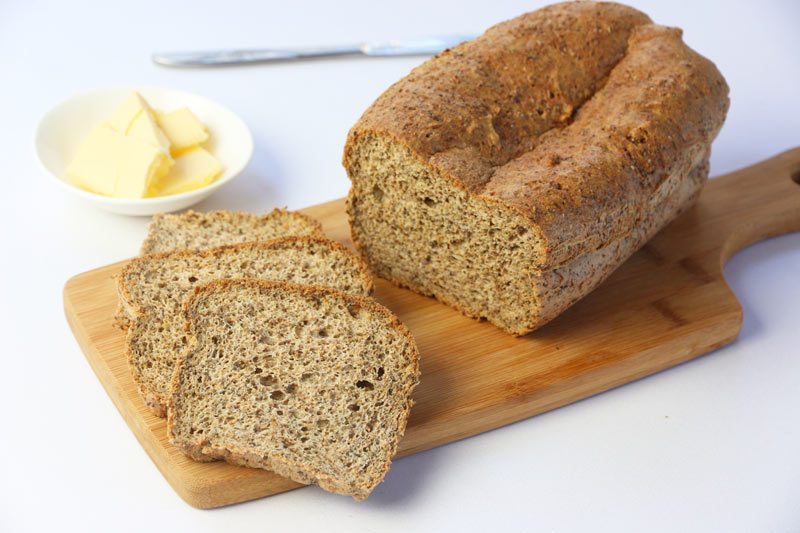
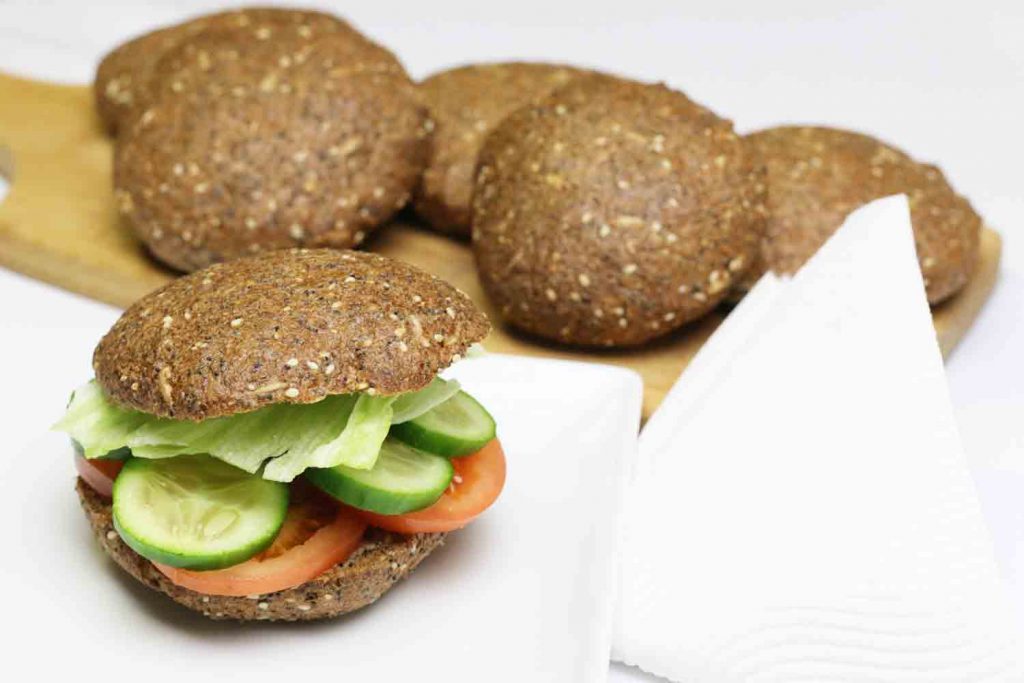
Psyllium can also be used in breads, muffins, cakes, pancakes, and so much more!
The whole psyllium husks are great and when baking, you can use the psyllium husk powder to achieve a smoother texture.
Overview of Psyllium Husk Benefits
Psyllium husk supplementation hits it out of the park in terms of its ability to improve health in type 2 diabetes and prediabetes.
The potential benefits include:
- Lower LDL cholesterol while maintaining healthy HDL cholesterol levels
- Reduce total cholesterol and triglycerides to improve heart health
- Lower fasting insulin and improve insulin sensitivity
- Lower fasting blood sugar levels
- Improve postprandial blood glucose levels
- Lower A1c levels
- Decrease constipation and boost digestion
Overall the benefits do seem well worth including psyllium husk in your daily routine, especially since it is a natural substance with ample scientifically-proven benefits!


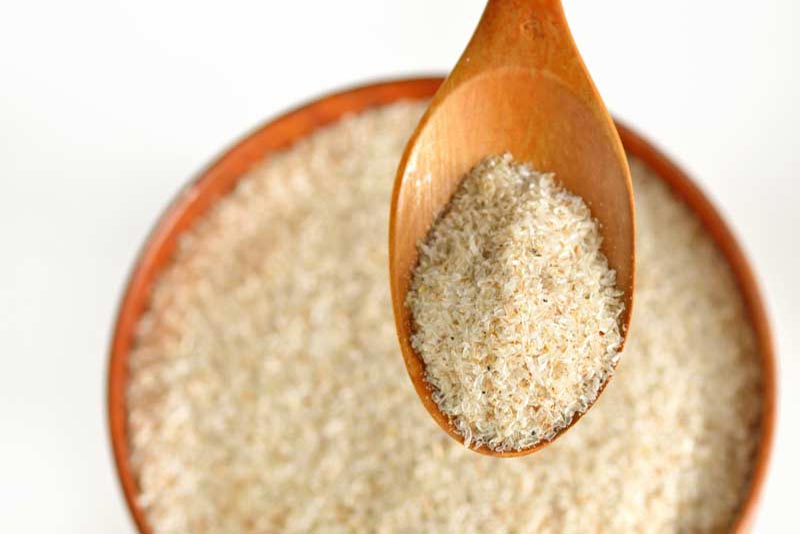
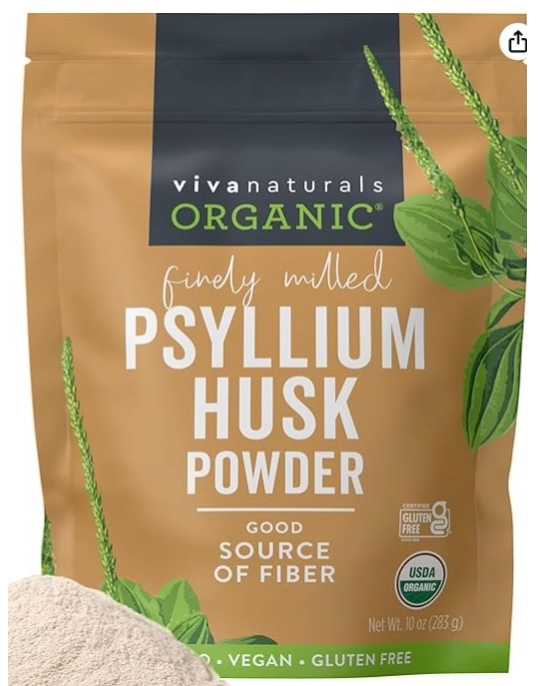
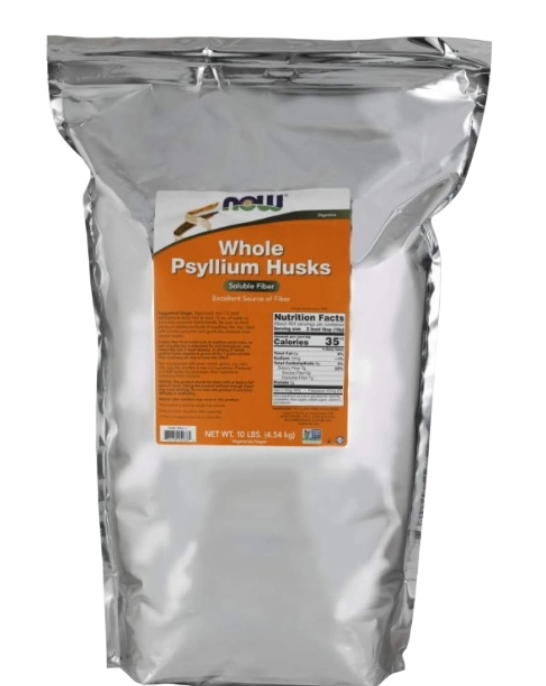


Cindy Trousdale
After complications with diverticulitis, I started taking psyllium husks daily. To my surprise my A1c was lower, and my cholesterol. It has been only three months, and I’m totally shocked. I lost 29 pounds, and limited all bad carbs. One year ago, and saw no changes in A1c.
Dr Jedha
That’s great to hear Cindy, psyllium can be very effective!
Angel Criado
As Type 2, I can confirm personal benefits of lowered blood glucose and increased insulin sensitivity, particularly combined with a moderately lower carb diet. I suspect the actual health benefits are under stated. It’s knocked me to a decent range regularly.
Alvin V Blount III
Great article! Any idea about Psyllium husk and Diarrhea and the absorption of other nutrients? While the husk ‘knock out the absorption of anything eaten for 1-2 hours?
Emily - Dietitian (MS, RD)
Although psyllium husks can help relieve constipation, they should not cause diarrhea in the general population. It may be helpful to start with a half serving for the first few days so you can see how your body and digestive system react, then gradually increase when you don’t experience any unwanted side effects. There is no research to suggest that taking psyllium husks would interfere with the absorption of other nutrients.
Russel
Learning something new everyday
Jahan Ara
Very informative